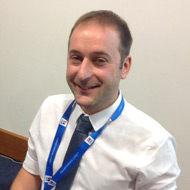What is One Health?

Matt Barnard at BVNA Congress.
These were the questions answered by Matt Barnard on the second day of the BVNA Congress in Telford.
In a fascinating presentation, he defined One Health as 'working together to achieve better public health through the interrelationship between humans, animals and the environment'. "As far back as 400BC, Hippocrates was already considering the subject," he said.
Sixty per cent of the 335 new diseases identified in the last 40 years are zoonoses. This is of particularly concern for the future.
Avian flu is being taken very seriously because of its ability, not only to cause species-to-species acute infection with high mortality, but also the ability of the virus to mutate and jump species to affect pigs and humans.
Matt explored the subject of food safety. He drew delegates' attention to the fact that 5 to 6 per cent of fresh chickens sold at retail are infected with Salmonella and this organism is isolated frequently from canine faeces. Sixty-one per cent of fresh chickens are contaminated with Campylobacter and this bacterium is isolated from between 50 to 100 per cent of dog faeces samples. All fresh chickens and dogs are contaminated with Enterobacteria.
There are many stages in food preparation where this contamination poses a problem. It is even more serious when considering the feeding of raw pet food – because there are not the same safety criteria as those applied to human food, different bacteriological checks, no cooking and an increased risk of exposure to pathogens. Nurses have a responsibility to inform owners of these facts and to advise on sensible precautions – such as separate storage, utensils and preparation areas and especial extra care with surfaces, bowls, disposal and hand washing.
Rabies is another area of concern under the One Health banner, and nurses need to be on the alert for anything suspicious with animals presented to them, especially relating to recent travel, microchipping and passporting. Under the terms of the RCVS Code of Professional Conduct, nurses have a responsibility to report their concerns to the appropriate authorities.
One Health encompasses physical and mental health too, through the human animal bond; and the contribution by VNs cannot be understated. Improving pet physical health can, in turn, improve the health of the owners.
Concluding his presentation, Matt said that "There are two forms of stress in practice – the predictable work stress and work environment stress." With respect to the latter, "It is particularly important to look out for and support one another," he said.



 The RCVS has announced a new version of its 1CPD mobile app, with enhanced features for veterinary surgeons and veterinary nurses to record their continuing professional development.
The RCVS has announced a new version of its 1CPD mobile app, with enhanced features for veterinary surgeons and veterinary nurses to record their continuing professional development.